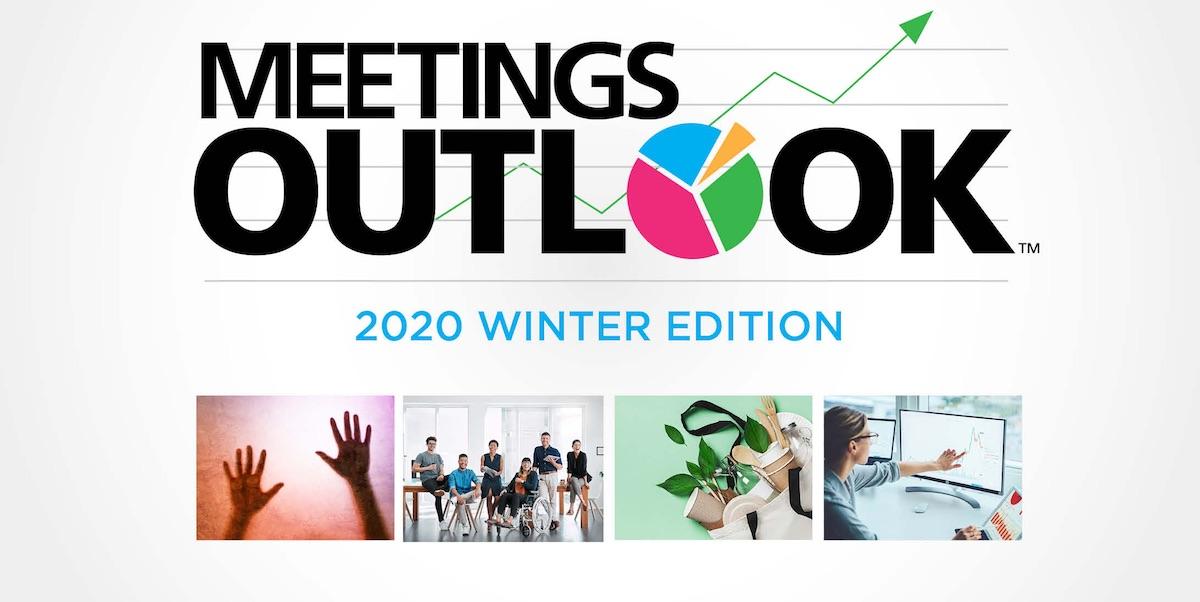This quarter’s Meetings Outlook showed a healthy, stable market with favorable overall business conditions. It was the third quarter in a row that has shown a shift to a more balanced market. Attendance and budget conditions were essentially flat.
An increased focus on sustainability in meetings was another key trend that emerged in the survey. As one anonymous respondent put it, “Sustainability will continue to grow as a trend and as a way of conducting business for the betterment of society. Meeting professionals and particularly business event strategists (planners) need to drive this change in order for key stakeholders within supplier organizations to follow suit and embrace across their business lines.”
How meeting professionals are embracing sustainability ranges from extensive zero-waste efforts to taking one or two high-impact steps to move the needle in the right direction. Among survey respondents, 29 percent said they are minimizing waste at meetings and events by using digital materials instead of paper, 22 percent are using recycling bins or back-of-house sorting, 18 percent are reusing or donating onsite materials, 15 percent are not using plastic straws and 12 percent are redistributing extra food.
Julia Spangler (MPI Indiana Chapter), a sustainable events consultant in Indianapolis, has been helping clients orchestrate zero-waste events. Among them was Masquerade, a non-profit fundraiser in Indianapolis for about 600 guests, held in October. Composting was a major element.
“By placing compost bins in the back-of-house catering stations, we diverted more than 750 pounds of organic waste from the trash,” Spangler says. “Combined with our other elements of recycling and donation, we kept 91.3 percent of the event’s waste out of the incinerator and landfill.”
To create a sustainable event with very little waste, Spangler has found it is essential to introduce the zero-waste concept into the planning process as early as possible, “so any effects these strategies may have on staffing or the timing of the event can be taken into account.”
Careful planning throughout the event is often necessary to prevent waste, she finds.
“For buffet meals, it’s important to keep food in the back-of-house until it’s truly needed, because food that has been on the event floor cannot be donated or reused,” Spangler says. “I recommend that caterers allow pans to fully diminish before replacing them, use smaller pans to keep the buffet fresh without discarding half-pans and use smaller serving utensils to encourage reasonable portion sizes. For plated meals, I strongly recommend that caterers not pre-set salads or desserts. In my waste audits, I’ve found that pre-set foods often make up the majority of waste from plated meals—and often they are completely untouched when they are cleared and thrown out.”
What About the Water?
Meanwhile, the United Network for Organ Sharing (UNOS), an association in Richmond, Va., has been incorporating water stations into meetings, in lieu of plastic bottles. Attendees can fill up cups at the stations in the back of the room.
“We were a little nervous about push-back,” says Jeff Schmid (MPI Virginia Chapter), assistant director, meeting partners at UNOS. “People do like to grab a bottle of water, but it was a no-brainer to try it out. It was one of those changes that not only saved us money but was also good for the environment.”
Experimenting with the water station came with some bumps, however. When water stations and cups were set up near the back, the water stations worked much better than pitchers on a table, he found.
Schmid’s team did get one complaint that he took under advisement, though—from a guest who fretted that he could no longer grab two or three bottles and bring them back to his room at night.
He’s willing to live with that. UNOS’ largest event is a 600-person, three-day event—meaning that adding the water stations has had a major impact on reducing water-bottle waste.
The experiment worked so well that at the larger meetings UNOS organizes, it has made sponsoring refillable water bottles a sponsorship opportunity. Schmid says that the experience of adding the water stations prompted him to think more about the role of planners in the sustainability effort.
“It can’t just be the hotels doing it,” he says. “It can’t just be the planners. It has to be the hotel working with the client and the planner being willing to change some things they do on the program level.”
Planners can play a role in sustainability by asking about sustainable practices in the RFP process with questions such as, “Do you recycle now?” and “Are there any notable sustainability efforts your property is making?”
“I can’t tell the hotel what to do but I can make it a priority to ask about it,” Schmid says. “We’re asking the questions now.”
In the full winter 2020 Meetings Outlook report, read more about the increasing demand for crafting unique attendee experiences and how meeting pros are dealing with that, as well as insights into other key trends and business projections across the industry.
Meetings Outlook is supported in partnership with IMEX Group.

